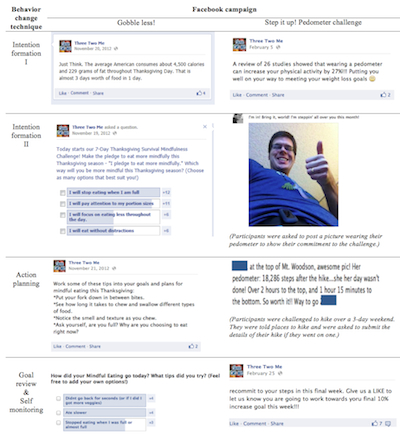 Facebook may be an effective medium to deliver theory-based weight loss content to college students, according to a randomized control trial of 404 students conducted by a group of researchers at the Center for Wireless and Population Health Systems, a division of The California Institute for Telecommunications and Information Technology (Calit2).
Facebook may be an effective medium to deliver theory-based weight loss content to college students, according to a randomized control trial of 404 students conducted by a group of researchers at the Center for Wireless and Population Health Systems, a division of The California Institute for Telecommunications and Information Technology (Calit2).
According to results from the study, the program indicated promising levels of engagement from participants, but future studies from the researchers will examine whether Facebook-based interventions improve behavioral outcomes and weight loss.
The researchers found that 73 percent of the 1,816 Facebook posts delivered were "liked" at least once by 68.8 percent of the intervention participants in the trial. While participants in the intervention group used a study-specific website, a blog, apps, a Facebook page called Three Two Me, a text message service, and a health coach, the control group had access to a self-guided educational program called SMART Health Tools that provided them with basic health information. The control group received very few interactive features in their program. The entire trial lasted two years.
Researchers chose the college demographic for the study because they found that one in three college students are overweight or obese and most students gain on average 10 pounds during college.
"Weight gain during this time can initiate a trend toward long-term weight gain and increase ones’ risk for developing Type 2 diabetes, coronary heart disease, and depression in adulthood," the study authors wrote. "Weight gain in young adults is also associated with psychological distress, such as low self-satisfaction and a loss of identity."
Additionally, researchers found over half the college population enrolled in a study that required one on-campus counseling session per week quit after three months and most of this group explained it was because they were busy.
Because Facebook is popular with the young adult population, the researchers chose it as the medium on which to test digital engagement strategies.
The students were recruited from three Southern California universities, University of California San Diego, San Diego State University and California State University San Marcos. Students in the trial were between the ages of 18 and 35, had a BMI between 25 and 40, owned a personal computer and a mobile phone with texting, and had a Facebook account or were willing to join.
Over the course of the 21 months, the health coach executed eight different campaigns on Facebook through posts. The researchers noted that the number of participants engaged in the campaign declined over time.













